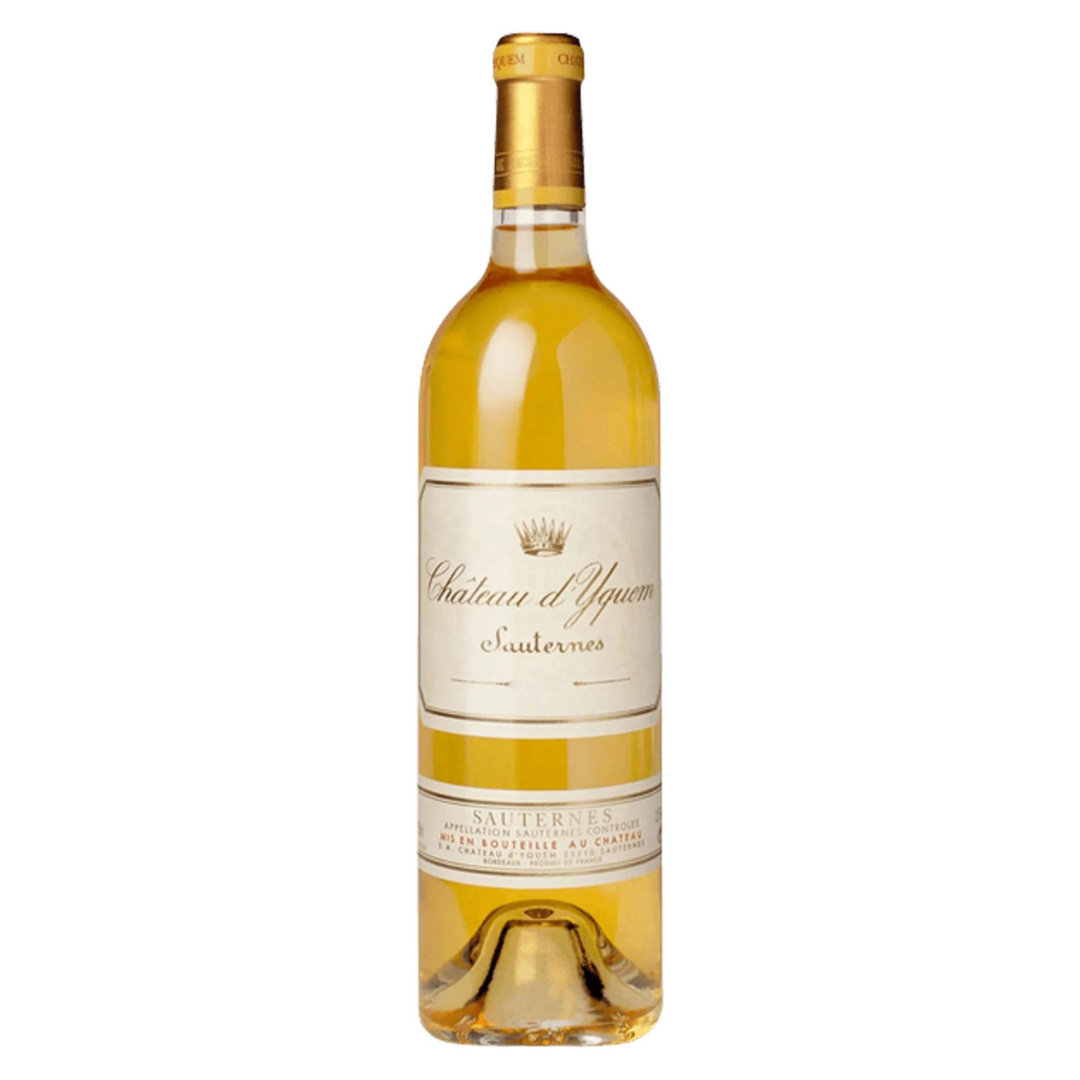Chateau D’ Yquem 2010
Chateau D’ Yquem 2010
Chateau d'Yquem is a world-renowned winery located in the Sauternes region of Bordeaux, France. It is particularly famous for its sweet white wines, which are made from grapes affected by Botrytis cinerea, a fungus commonly known as noble rot.
The history of Chateau d'Yquem dates back to the middle ages. The King of England, Richard I, also known as Richard the Lionheart, once owned Chateau d'Yquem. Richard acquired the property in the late 12th century, during his reign as King of England from 1189 to 1199. He was known for his love of wine and reportedly praised the quality of the wines produced at Chateau d'Yquem, which were already famous at the time. However, Richard did not own the property for long, and it eventually passed through several different owners before being acquired by the Lur-Saluces family in the 18th century. The family owned and operated the winery for more than 200 years, during which time they established a reputation for producing some of the world's finest sweet wines. Chateau d'Yquem is currently majority owned by LVMH Moët Hennessy Louis Vuitton, a French luxury goods conglomerate. LVMH acquired the stake in the winery in 1999 from various members of the Lur-Saluces family, which retains a minor interest in the producer after more than two centuries.
The winery's vineyards cover around 125 hectares, with a mix of grape varieties, including Semillon and Sauvignon Blanc. The unique climate of the Sauternes region, with its misty mornings and warm, sunny afternoons, creates ideal conditions for the development of noble rot, which is necessary for the production of the winery's signature sweet wines. Sauternes production is a risky business– as nature can be incredibly fickle and the cultivation of botrytis is very much left to chance. If the rot does not infect enough of the vineyards, high-ranking producers like Château d’Yquem will abstain from crafting a vintage all together. Because of this, each successful vintage of Sauternes is a treasure meant to be celebrated in its own right, and producers that achieve the quality level of Château d’Yquem are truly remarkable vignerons.
Château d’Yquem is blessed with some truly exceptional terroir, and it is the only producer that is classified as a First Growth Premier Cru Superieur within the appellation. Interestingly enough, Chateau d'Yquem's vineyards are known for their unique blue clay soils, the same blue clay instrumental to the success of some legendary Pomerol wines such as Château Petrus, Trotanou, and Clos du Clocher. The blue clay, also known as "mystique clay," is a rare type of soil found only in a few select locations in the Sauternes region of Bordeaux, where Chateau d'Yquem is located. The blue clay is particularly well-suited to the cultivation of the Semillon grape, which is one of the primary varieties used in the production of the winery's sweet wines. The clay helps to regulate moisture levels in the vineyard, which is important for the development of noble rot, the fungus that contributes to the unique flavor profile of Chateau d'Yquem wines. Overall, the blue clay soils of Chateau d'Yquem are considered a key factor in the winery's success and reputation for producing some of the world's finest sweet wines.
Chateau d'Yquem wines are highly sought after and can command high prices at auction. They are known for their complexity, richness, and balance, with flavors of honey, apricot, and vanilla, among others. The winery produces both a grand vin and a second wine, and only the best vintages are bottled as grand vin. Château d’Yquem is a wine that any person should experience at least once. It is surprisingly versatile, and though distinctly honeyed, it pairs with a plethora of dishes. Sauternes is a stunning alternative to dry wines when paired with poultry dishes and is exceptional with cheeses of any kind. The wine’s sweetness contrasts beautifully with exotically flavored and spicy dishes as well.
Couldn't load pickup availability
Share


